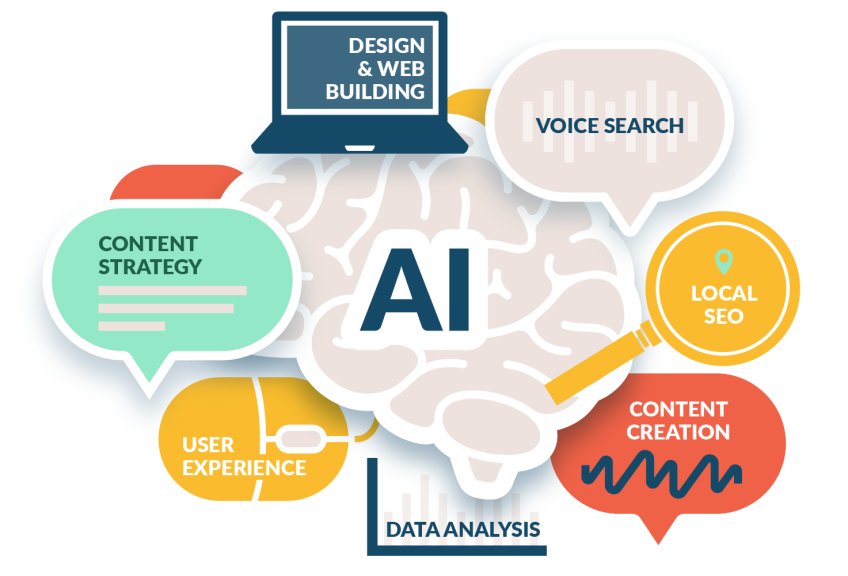
The Rise of Conversational Commerce: Triumphing in the ChatGPT Marketing Era
The digital marketing landscape is undergoing a major transformation. With the rise of AI tools like ChatGPT, consumers are no longer relying solely on search engines to discover brands—they're turning to conversational assistants for recommendations.
As a result, traditional SEO strategies focused on clicks and keyword rankings are becoming less effective. In this new era, brand mentions, off-site credibility, and reputation across third-party platforms are becoming the deciding factors in visibility.
This article explores how marketers must adapt by optimizing for AI-generated responses, embracing brand storytelling, leveraging new tools, and preparing for the shift toward conversational commerce.

The Transformation in Digital Marketing: From Clicks to References
For decades, digital marketing has been centered around a fundamental objective - acquiring the click. Marketers fine-tuned websites and advertisements to lure traffic from search engines, concentrating on metrics such as click-through rate (CTR), keyword rankings, and bounce rate.
Triumph was gauged by how many individuals arrived at a webpage after encountering a link in Google search results. This model functioned effectively when users depended on traditional search engines as the primary means of discovering information and making purchasing decisions.
Nonetheless, the landscape is evolving swiftly with the emergence of robust language models (RLMs) like ChatGPT. Rather than sifting through pages of search outcomes, users are now involved in dialogues with AI to uncover solutions, investigate products, and receive suggestions.
This conversational platform does not prioritize links or advertisements - it prioritizes references, citations, and emotions extracted from a diverse array of online origins. In this fresh paradigm, being referenced - and favorably depicted - within the training data and real-time browsing capabilities of AI assumes greater significance than merely ranking on the initial page of Google.

How ChatGPT Is Changing Consumer Behaviour
The way consumers search for and discover products is evolving, and ChatGPT is at the forefront of this change. Instead of relying solely on search engines, more users are beginning to ask AI tools for personalised recommendations.
This shift is subtle but significant - when a user asks ChatGPT for “the best wireless earbuds under £100,” the AI doesn’t display a list of ads or search results. Instead, it provides curated suggestions based on existing online content, reviews, and consensus from multiple sources. This behaviour positions ChatGPT not just as a tool, but as a trusted shopping assistant.
Recent data confirms this trend. Between late October and mid-January, Amazon.co.uk emerged as the most referred domain from ChatGPT, accounting for over 9% of all outbound traffic via the tool’s search functionality.
Although e-commerce domains are currently behind news and academic sites in terms of volume, the shift is underway. As AI-generated recommendations gain credibility, marketers must acknowledge this new path to purchase. The funnel is no longer linear—it begins with a conversation, and brands must ensure they are included in that dialogue.

Why Traditional SEO Is No Longer Sufficient
Search engine optimisation (SEO) has been the cornerstone of online visibility for a considerable time. By fine-tuning factors such as page load speed, keyword density, mobile compatibility, and backlink quality, brands could secure a favourable position in Google's intricate algorithm.
While these aspects remain important, they are no longer adequate in a landscape where AI-powered models like ChatGPT summarise content rather than simply provide search result links. The new gatekeepers of online presence are not solely ranking web pages; instead, they are collating reputable references and delivering condensed insights.
Therefore, merely having a flawlessly optimised website is insufficient for securing visibility within AI-generated responses. ChatGPT does not solely rely on structured metadata; it extracts information from extensive content, customer reviews, blog entries, online forums such as Reddit, and social media cues.
If your brand is unseen or inadequately represented across these platforms, you risk being excluded from the conversation entirely, even if your website ranks well on Google. The future of SEO necessitates a more extensive content presence, encompassing content posted off your website, indicators of a reputable standing, and uniformity across various communication channels.

Triumphing in the Mention: The Latest Metric for Brand Visibility
In this epoch of colossal language models, the novel arena for digital marketing transcends mere discovery—it centres around being acknowledged. When users engage with tools such as ChatGPT, they are often in quest of tailored solutions, not just links.
This revolutionizes the landscape entirely. Should your brand fail to feature in reputable content across the cyberspace, the likelihood of its inclusion in the AI’s retort is significantly diminished. Visibility is no longer contingent on top-ranking status—it hinges on being a topic of conversation, and the manner in which it is addressed.
Securing the mention demands establishing a footprint in external content realms: blog entries, assessments of products, forums on Reddit, verbatim transcripts of podcasts, and even abridged versions of videos on YouTube.
It embodies a more decentralised variation of SEO, where prestige, pertinence, and recurrent allusions bear more significance than conventional backlinks. Astute brands are actively collaborating with content producers, influencers, and agencies well-versed in AI to ensure their integration into the narrative—because failure to shape their brand narrative could lead to less precise fill-ins by LLMs.

The Rise of Brand Storytelling and Off-Site Credibility
As AI models draw conclusions from scattered content across the internet, brand storytelling has become more than a marketing trend—it’s now a technical necessity.
Telling your brand’s story through consistent, value-driven content helps LLMs like ChatGPT better understand what your company stands for, what it offers, and who it's for. Articles, blog posts, case studies, and customer reviews are no longer just trust signals for human readers—they're training signals for AI.
Off-site credibility is equally important. AI systems increasingly rely on forums, Q&A sites, social media, and independent blogs to gauge consensus.
A glowing review on a third-party blog or a discussion thread on Reddit may carry more weight than a polished landing page. That’s why brands need to ensure their message is being echoed by others outside their controlled environment.
Encouraging customers to leave reviews, working with influencers, and seeding helpful content in relevant online communities are all critical to maintaining accuracy and trust in AI-generated summaries.

Methods and Strategies to Optimize AI Mentions
As brands vie for prominence in AI-fuelled dialogues, comprehending how one is perceived on the digital landscape becomes imperative. This is where AI perception tools such as Gumshoe, Brandwatch, Talkwalker, and others, step into the arena.
These platforms simulate myriad queries or scrutinize discussions about your brand on open forums, blogs, and social media platforms. They aid marketers in recognising trends, deficiencies, and even misinformation that could sway the portrayal of their brand by AI systems.
Alongside utilising tools, brands should enact strategic measures to elevate their AI visibility. These encompass crafting content in a conversational style, engaging with authoritative platforms, and actively soliciting customer feedback and community acknowledgements.
It is also prudent to chart your brand's online footprint across various channels to ensure coherence and credibility. By monitoring and enhancing how your brand is cited in external content, you position yourself to be chosen—not just searched for—in the realm of AI to come.
To aid in commencing this journey, here is a comparison chart of premier tools tailored to supervise, simulate, and enhance your brand's presence in AI-driven realms:
| Tool | Key Attributes | Suitable For | Pricing Category |
|---|---|---|---|
| Gumshoe AI | Simulates LLM queries, identifies perception gaps, offers AI enhancement insights | LLM enhancement and AI oversight | Premium |
| Brandwatch | Real-time brand monitoring, sentiment analysis, influencer tracking | Corporations seeking brand intelligence at an advanced level | Mid to High-End |
| Talkwalker | Visual listening, social trends, AI-driven analytics | Global marketing and PR teams | Mid to High-End |
| Mention | Monitoring of social media and web, alerts for brand mentions | Small and medium-sized enterprises and agencies | Cost-effective |
| YouScan | Recognition of visuals, monitoring of social media, extraction of customer insights | Brands with visual focus and product-oriented companies | Moderate |
| Google Alerts + Manual Review | Basic web monitoring and email notifications | Monitoring on a budget | Free |

Preparing for the Future: What Smart Marketers Are Doing Now
While the current shift towards AI-assisted shopping and discovery is still in its early stages, astute marketers grasp the writing on the wall. Although firms like Hawke Media disclose that they have not yet observed a substantial decrease in organic traffic, they are proactively adjusting strategies to stay ahead.
This involves forging alliances with AI-specific marketing platforms, scrutinizing their brand's visibility in third-party content, and crafting conversational content that resonates with both humans and AI models.
Being ahead of the curve provides a competitive edge. Brands that delay until traffic diminishes before responding may struggle to keep up.
Smart marketers are already broadening their content strategies beyond their own websites—emphasizing the importance of being discussed in Reddit discussions, specialized blogs, podcast episodes, and customer review platforms.
They view each of these as a potential training cue for LLMs, ensuring that when AI is queried about their sector or product category, their brand is naturally highlighted—credibly and confidently.

Your Brand in the Age of Conversational Commerce
The era of conversational commerce is no longer a futuristic concept—it’s unfolding right now. Large language models like ChatGPT are changing how consumers search, shop, and engage with brands.
Instead of combing through search results, people are seeking curated answers and product suggestions from AI tools that aggregate data across the internet. For marketers, this presents a challenge—but also an incredible opportunity. Those who adapt early can position their brand to not just survive the shift, but thrive in it.
The takeaway is clear: if your brand isn’t mentioned, it doesn’t exist in the AI’s world. Now is the time to build your off-site reputation, craft content that tells your brand’s story, and use tools to track and optimize how you're represented online. In this new digital ecosystem, visibility comes from credibility, relevance, and presence—not just from paid ads or Google rankings.
Think of every piece of content, every review, every conversation as a potential "prompt" feeding into an AI model. Shape those inputs now to influence the outputs later.
Key Takeaways Recap
- Digital marketing is shifting from click-throughs to brand mentions, especially in LLM-generated answers.
- Consumers are beginning to shop via ChatGPT, making conversational commerce a rising trend.
- Traditional SEO needs to evolve—brands must focus on content credibility and off-site visibility.
- Mentions in forums, blogs, and reviews are the new currency of AI-driven brand discovery.
- Brand storytelling and reputation management are now essential for accurate AI representation.
- Marketers should leverage AI perception tools (like Gumshoe or Brandwatch) to monitor and optimize mentions.
- Proactive brands are already adapting, even before traffic shifts become drastic.
- Success in AI-driven marketing will come from shaping how AI models perceive and talk about your brand.